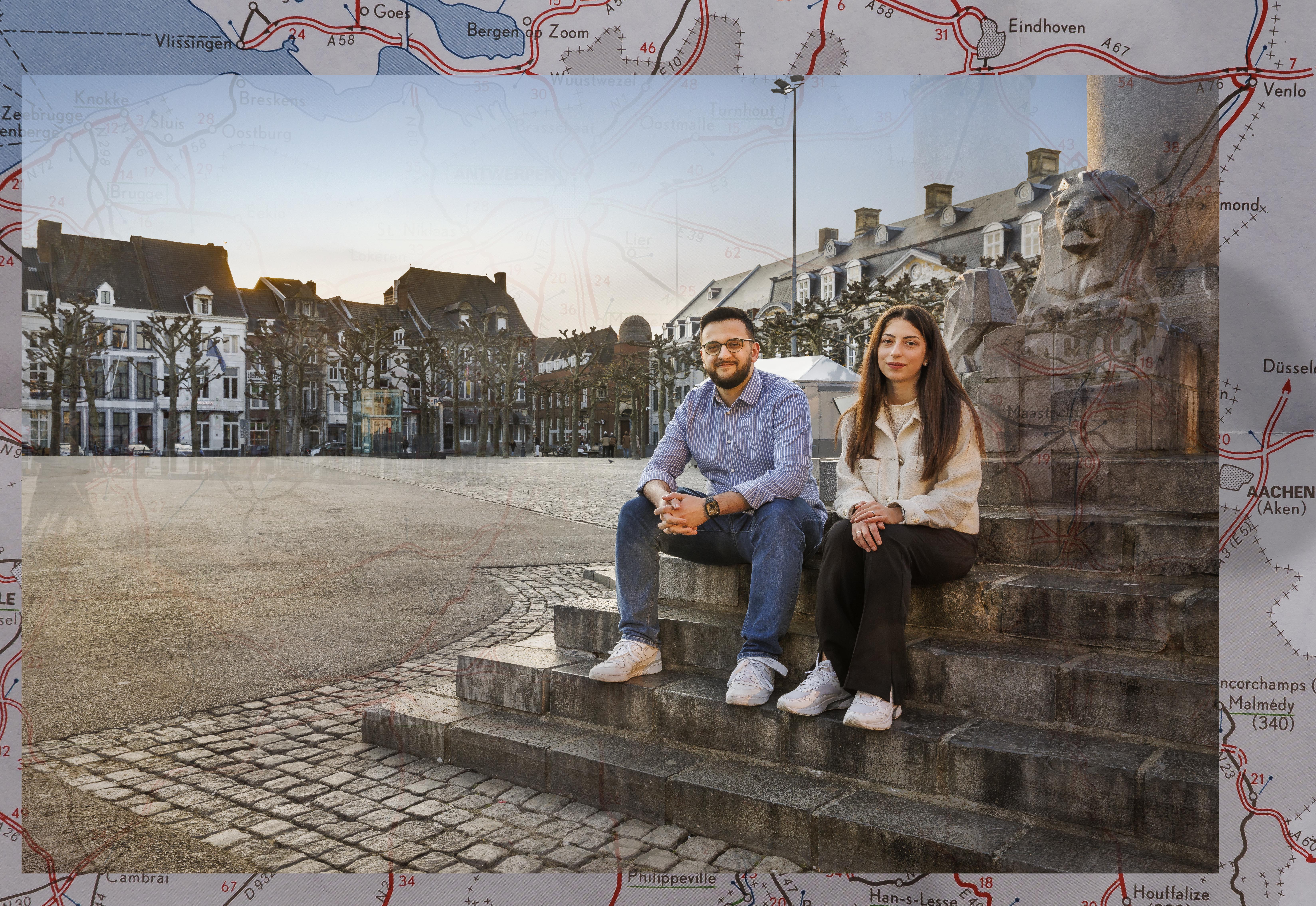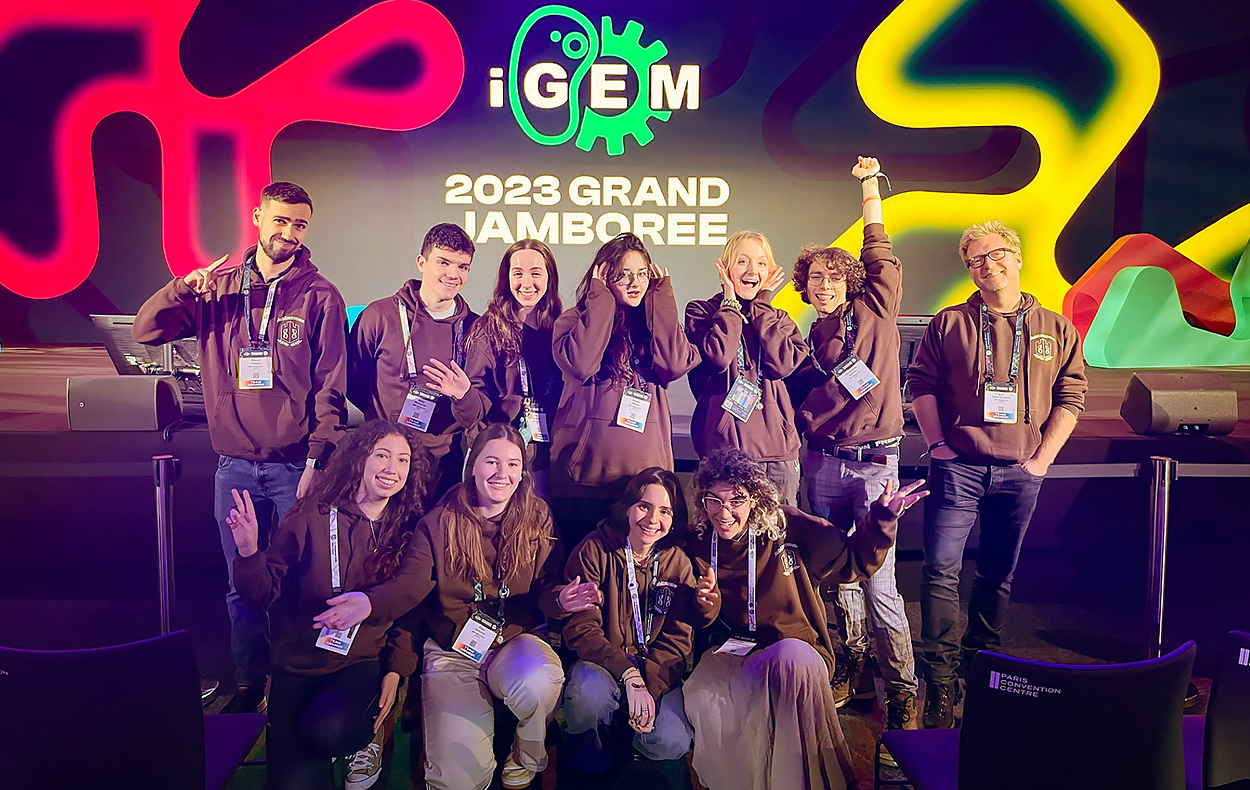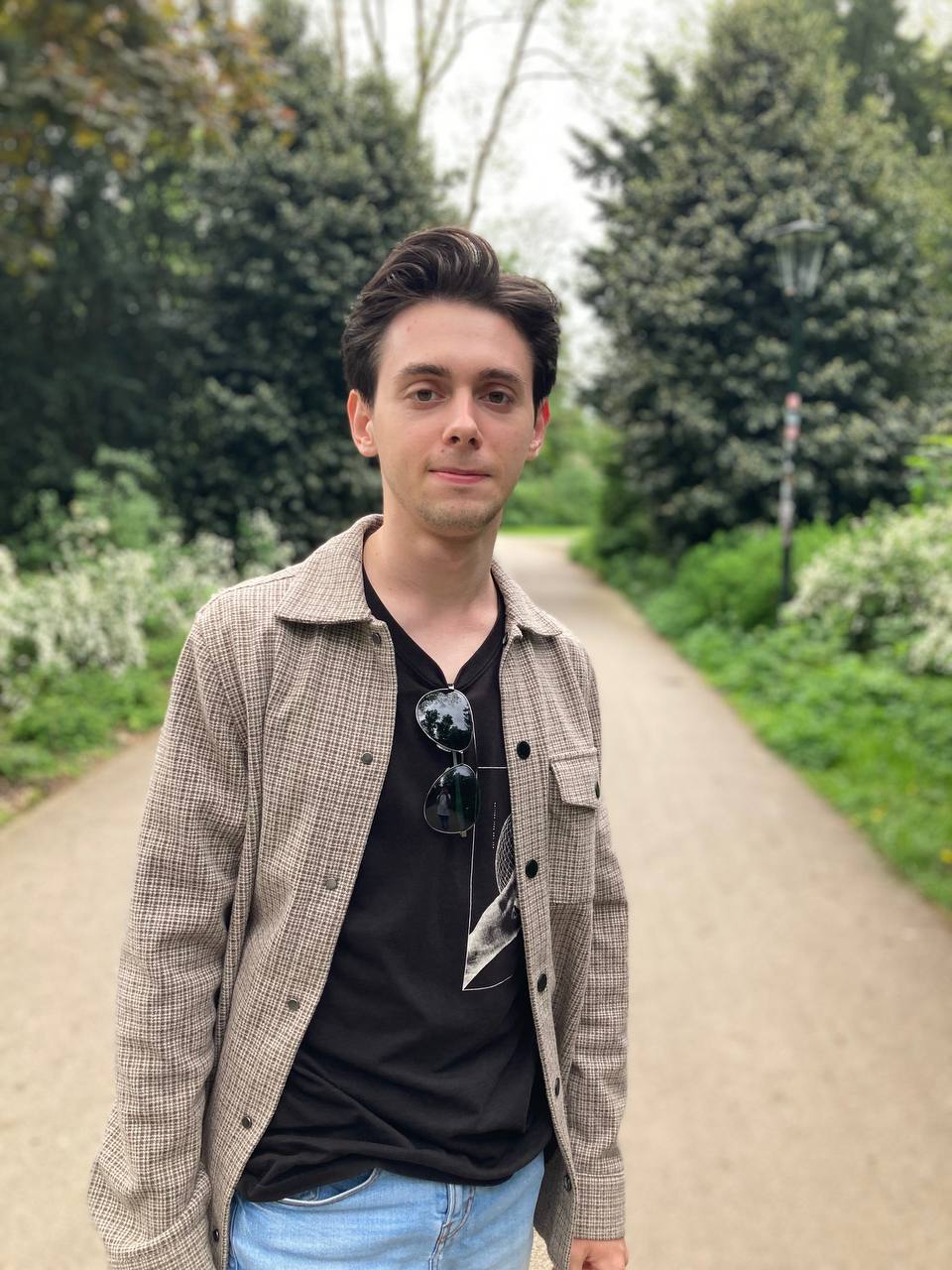One stayed in the Koekoek’s nest
Gideon Koekoek teaches theoretical physics and researches gravitational waves from the comfort of his home – and is working his pecs in the process.
It’s mostly formulae and thinking about things, so the situation’s not that bad for me and my students,” says Gideon Koekoek, assistant professor for gravitational waves and fundamental physics at the Faculty of Science and Engineering (FSE). His teaching and research are going ahead and he seems quite chipper. Then again, Koekoek has had a slight head start in familiarising himself with the current conditions.
Early adopter of social distancing
“I attended a workshop in Malta a couple of weeks ago. There were no travel warnings or anything like that – but then, suddenly, we were told that someone there had tested positive for COVID19 and that we should leave at once.” Koekoek flew back the next day and quarantined himself as a precaution. He hasn’t had physical contact with students since.
About 15 to 30 students would usually attend his lectures in theoretical physics at the Maastricht Science Programme (MSP). “It’s very abstract in one way, but very PBL in another. There is a problem and we need to solve it together. Someone proposes a solution; we try it out and then see if it works or discuss why it doesn’t.” That’s why he keeps his lectures as interactive as possible – even online
Mathematical machinations of the downward dog
Koekoek doesn’t prerecord his lectures; he broadcasts all of them live. He doesn’t like using slides; instead he got an electronic writing board that allows students to follow his working out of the formulae in real time on an online whiteboard. The emphasis is on the process – the activity, not the result. “It’s like yoga: it makes a difference whether a teacher shows how they got into a certain position or whether you merely see a photo of that position.”
The reactions so far are positive but switching to online education is no trifling matter. “The difficult bit is really that I can’t read the students’ non-verbal feedback. I try to anticipate who finds what difficult and involve them before they get lost – but now I can’t see them.” To compensate, he challenges his students to ask questions decisively and early through an audio chat function.
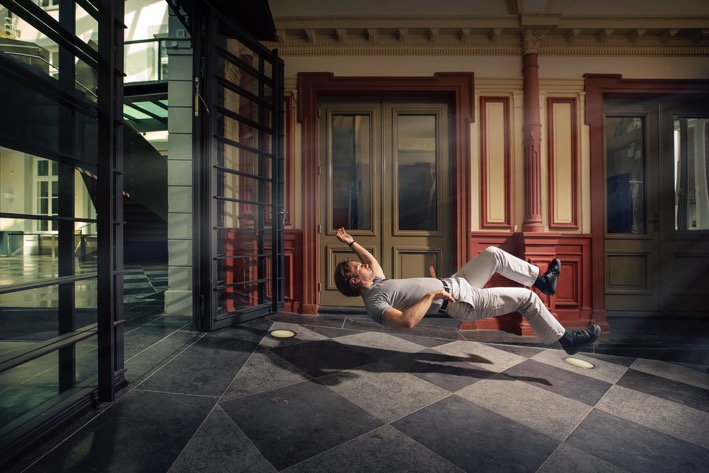
Calculations: it’s all about the journey
Online tutorials are more of a challenge. “It’s the same as with the writing board and the lectures: the result doesn’t mean much; you need to see someone perform those mathematical manipulations – not just verbally but also visually.” With students depending on each other, the best they can do for the time being is sharing photos of the calculations and then discussing them step-by-step.
Koekoek is very positive about the collegial spirit at MSP. “We have a chat group to exchange and discuss experiences. MSP is very interdisciplinary and diverse – so different courses will require different approaches.” They also had a meeting – online, like everything else these days – to discuss each other’s ideas for how to test students at the end of the period.
Relativistic electrodynamics – look it up!
“It depends on what you want to test: if it’s about understanding, a written essay is fine. For calculations it’s more difficult because you can’t invigilate a written exam online.” Koekoek sees open book exams as a blessing in disguise. “If students can use books, it means they won’t get stuck on the mathematical machinations and I can test the physical insights much more in depth.”
He gives his course in relativistic electrodynamics as an example. “It’s basically about charged particles floating around. To figure out the dynamics of the electromagnetic fields at certain distances you need vector calculus and tensor algebra– which many people struggle with. But if they can look up assistance for the mathematical derivations, there’s time left to ask them: ‘ok, so what does all of this mean physically? What is happening?’
Work together – work out apart
He thinks this is more representative of actual research as well. “It’s not like I know all the formulae I could ever need by heart – I have to look up things too.” And because his research is on theoretical physics, he only needs his books and something to write on. “If anything, working from home makes it easier to get into the meditative state required to work on physics.”
Overall, Koekoek is grateful for how things have played out so far. “UM has been very supportive, providing resources and information – and also giving faculties the freedom to do things in the most suitable way.” He is particularly happy about his students’ attitude: “they are very understanding and are working with us to help keep the level of the education high.”
The only remaining problem then is that his gym is closed. “Working out is a great balance for abstraction and calculations … so now I’m doing an awful lot of push-ups.”
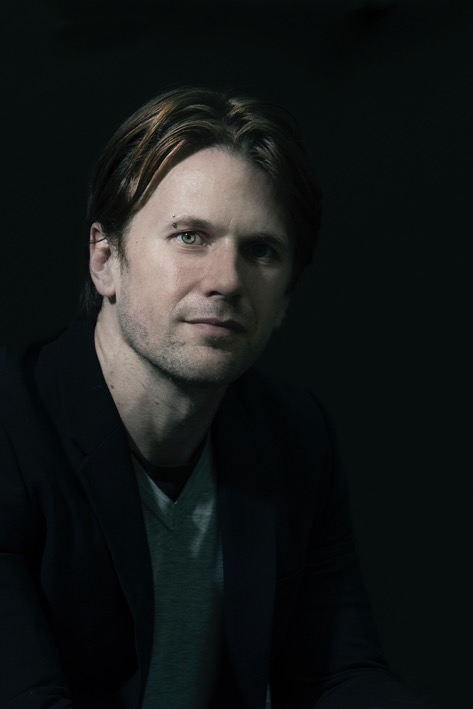
Gideon Koekoek is Assistant professor at the Maastricht Science Programme, where he lectures theoretical physics, adds to the science curriculum, and does research on gravitational waves, in close collaboration with Nikhef (the Dutch institute for subatomic physics) and LIGO/Virgo (the worldwide collaboration on gravitational wave research).
This article is part of 'We're Open', a series of stories about the UM community’s many activities during the coronavirus pandemic.
Also read
-
How an honours programme is staving off brain drain
In the KE@Work programme, students solve a complex, real-world problem while working at a local company. An honours track of the bachelor’s in Data Science and Artificial Intelligence, KE@Work provides ambitious students with valuable work...
-
How do you fix a crack in limestone, such as mergel? Well, simply ask some bacteria to do it for you. In short, this is the goal 11 students from Maastricht University set themselves to do. They succeeded and ended up in the TOP10 best undergraduate projects competing in the iGEM competition. For...
-
Nikola Prianikov came from Kyiv to study Data Science and Artificial Intelligence in Maastricht. He talks about how UM’s Foundation Programme opens doors for international talent, how he enjoyed his study experience despite war and pestilence, and how the Netherlands has come to seem like a viable...
